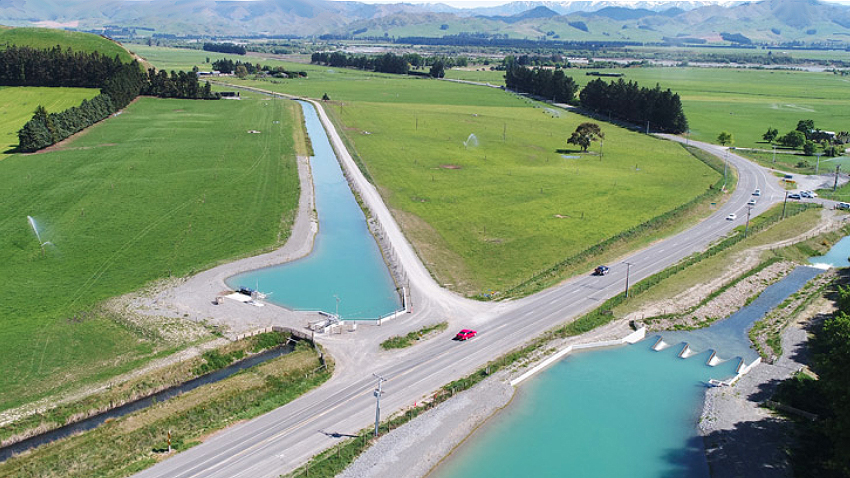
Angus Kebbell talks to a Hurunui River dairy farmer and DOC's chief scientist about how land use changes brought by irrigation are changing the river catchment water quality
by Angus KebbellFactum-Agri is a weekly podcast dedicated to New Zealand’s Agriculture industry produced by Angus Kebbell. Key areas of focus are - industry analysis with key stakeholders, policy makers, engagement with farmers and producers, and working to close the rural/urban divide.
We are looking at what farmers are doing to improve their businesses, their biodiversity, their land use and their wellbeing.
Over the past few weeks, we have been looking at farming after the Kaikoura Earthquake and how communities have rallied together and come out the other the end of such a devastating event.
Earthquakes and climatic factors have a significant impact on New Zealand’s farmers and producers, and all rural areas in New Zealand have a similar vulnerability to earthquakes and there are many lessons to be learned for farmers around the country from the Kaikoura earthquake.
Over the last couple of weeks Factum-Agri has been discussing the economic and social benefits and challenges of irrigation.
This week the environmental implications of irrigation are being discussed with farmer Nick Ensor and Ken Hughey who is the Chief Science Advisor to the Department of Conservation.
Ensor farms 520 ha in the Hurunui River catchment as an irrigated dairy unit that has been converted from sheep & beef.
Irrigation has enabled all-year grass growth although water access is only required in the September to May period. Converting to dairy allowed 90 ha of hill country to be retired into forest and wetlands, and now less than half the farm is used directly for dairy livestock, the rest for dairy support so that the unit is now fully self-contained. Erosion susceptible areas are now no longer under farming stress.
The farms now also supports more employees, going from one as a sheep & beef unit to four as a dairy unit.
Ensor welcomes the focus on standards and improvement. But he does chafe with the heavy-handed focus of the bureaucratic regulation that seems to overlook the big picture gains being achieved in favour of form-filling processes.
Hughey is at the top of the chain of regulators in the Hurunui River catchment, and a Professor of Environmental Management at Lincoln University. He is also well connected to the Wellington policy makers.
He is responsible for implementing the Fresh Water NPS in the catchment.
He sees much progress, but says that any further fresh water degradation is no longer acceptable to anyone.
He says irrigation can work well for overall water quality, and the irrigation scheme companies play an important role in setting standards and driving improvement among their customer/shareholders.
He is also watching a growing movement of farmers who are voluntarily applying covenants to their land to protect biodiversity.
While Hughey doesn’t think farmers are being unfairly targeted by the national fresh water standards, he does agree urban voters and Wellington officials don’t give farmers credit for the progress being made.
He points out that Christchurch City essentially refuses to manage severe water degradation from excessive concentrations of Canada Geese in its waterways, a problem that spills over to all of North Canterbury. And then these voters blame farmers who actually are managing such problems successfully.
In the end, Hughey says farming, including irrigated farming, will be the engine that pulls New Zealand out of its economic recession. And farmers need to be rewarded when they do that while improving the natural environment.
Farmers work hard, they love the land and care for whatever is produced on their properties. There are many things for farmers to think about whether it be drought, market conditions and farm gate returns, and increased pressure from the public or policy makers.
This podcast series tells the stories of these challenges.
Angus Kebbell is the Producer at Tailwind Media. We are hoping this will become a regular series.